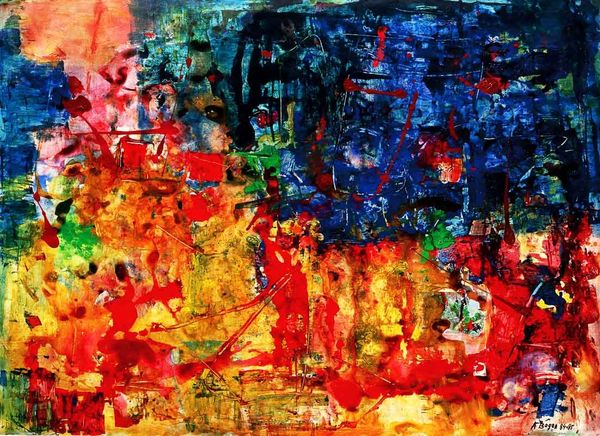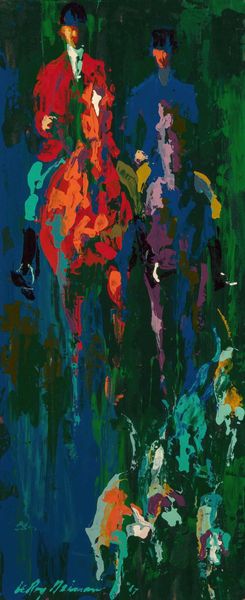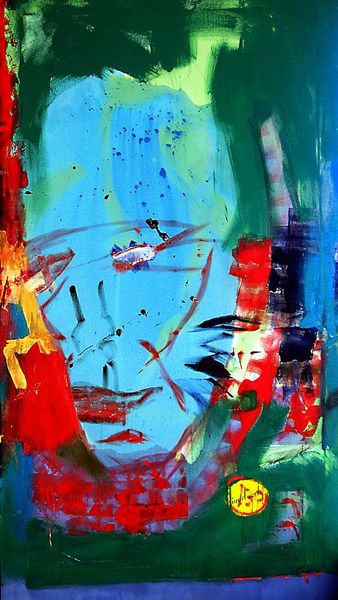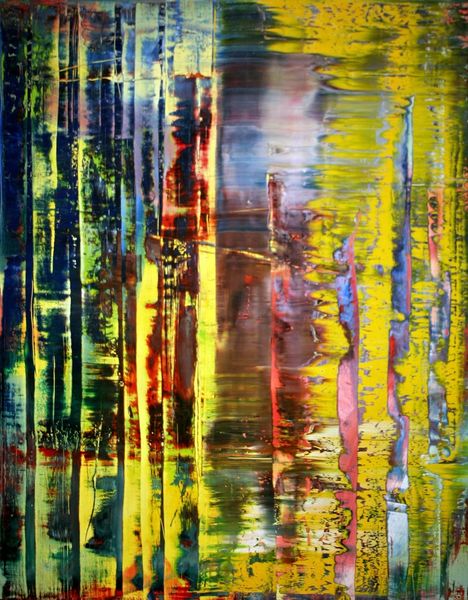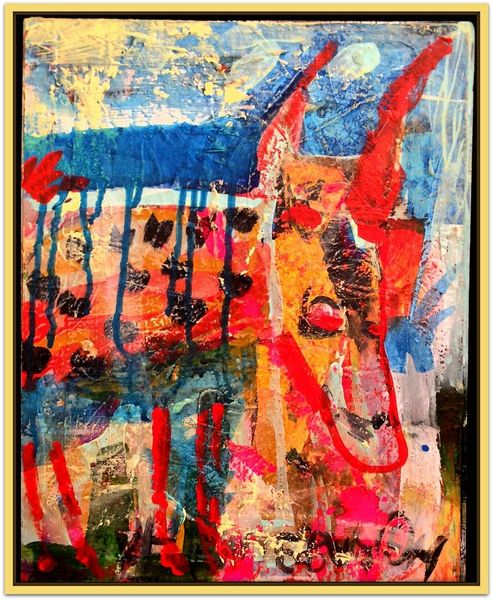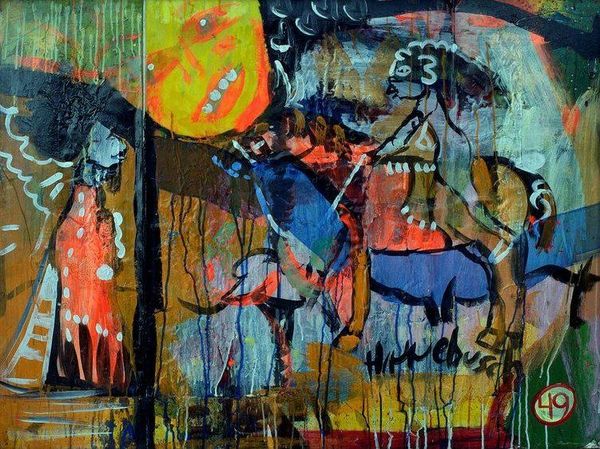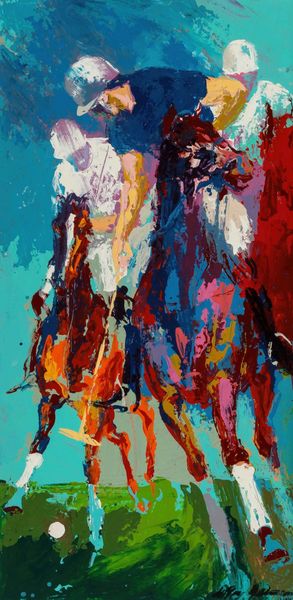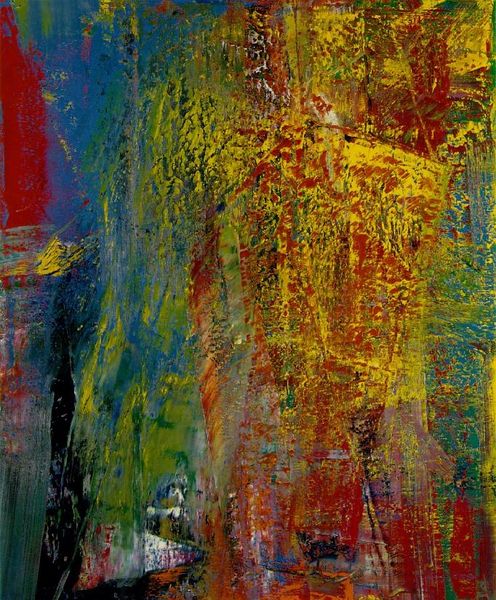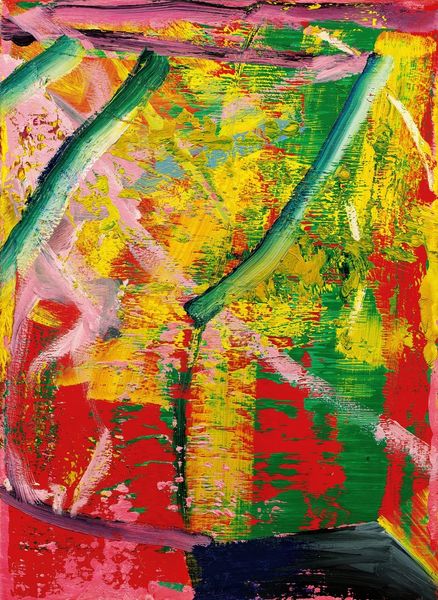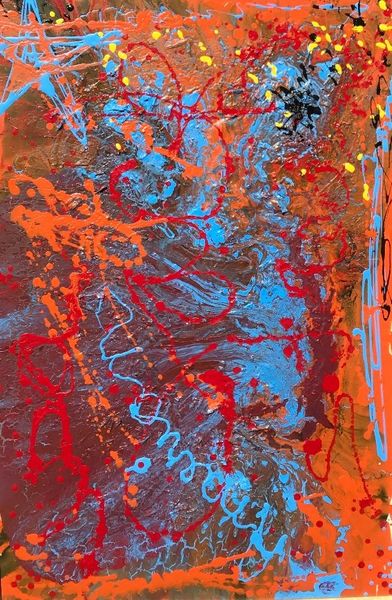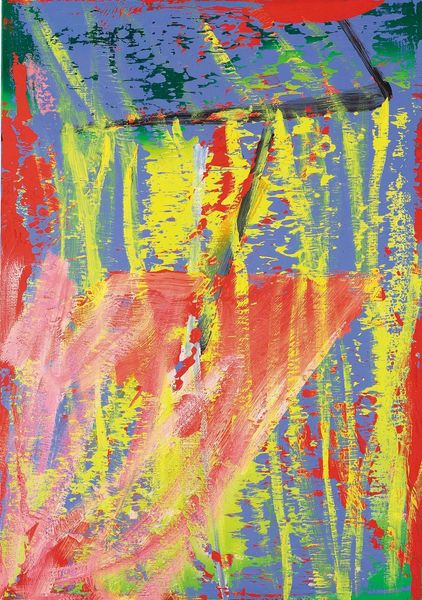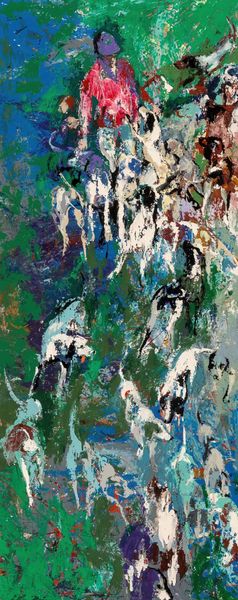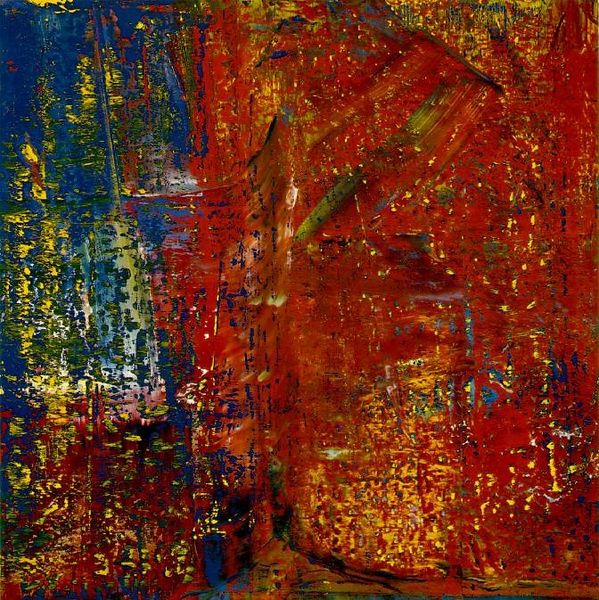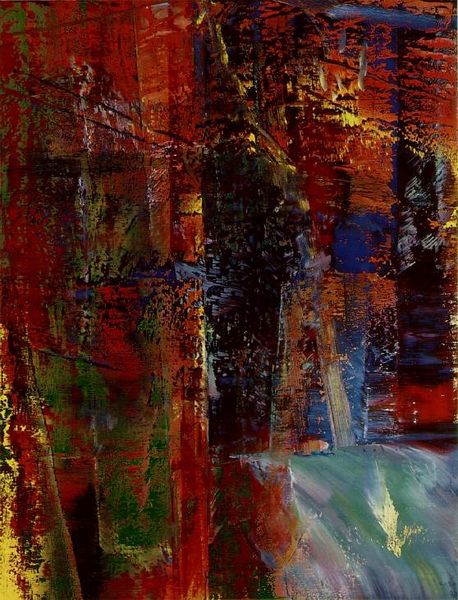
painting, acrylic-paint
#
abstract-expressionism
#
abstract expressionism
#
painting
#
acrylic-paint
#
abstract
#
acrylic on canvas
#
capitalist-realism
#
geometric-abstraction
#
abstract art
Copyright: 2019 Gerhard Richter - All Rights Reserved
Editor: Looking at Gerhard Richter’s painting "Mediation," which I understand is an acrylic painting, I’m struck by its sheer energy. The colours clash and blend, creating a really dynamic effect. What do you see in this piece? Curator: What I see is a powerful negotiation between chaos and order, a tension reflective of broader societal struggles. Richter painted this during a period marked by intense political and social upheaval, and I think that's palpable. Consider the aggressive brushstrokes—could they be interpreted as a response to established power structures? Editor: That's a really interesting perspective. I was so focused on the pure aesthetics, but viewing the brushstrokes as a form of protest makes me think differently. How does Richter’s abstraction play into this potential social commentary? Curator: Abstraction becomes a powerful tool here. By rejecting representational imagery, Richter evades direct censorship and creates space for multiple interpretations. The blurring of forms could be seen as a destabilization of fixed identities and narratives, an opening for more inclusive possibilities. Do you notice how certain colours seem to dominate others, creating visual hierarchies? Editor: Yes, the red really stands out. Does the prominence of certain colours hold any meaning? Curator: Absolutely. Think about the cultural symbolism of colours. Red, often associated with passion, anger, or even revolution, could be Richter's way of highlighting specific social anxieties or advocating for change. Considering this work within the context of feminist theory, for example, we might also explore how the layering and obscuring of forms challenge traditional patriarchal perspectives. Editor: That's a lot to consider, it definitely makes the piece richer and more complex. Curator: Exactly. Richter isn't just creating something beautiful; he’s prompting a dialogue. What starts as an aesthetic experience transforms into a reflection of our socio-political landscape. Editor: Thank you, it really changes how I view abstract art now. I'll definitely look for these historical elements next time.
Comments
No comments
Be the first to comment and join the conversation on the ultimate creative platform.
